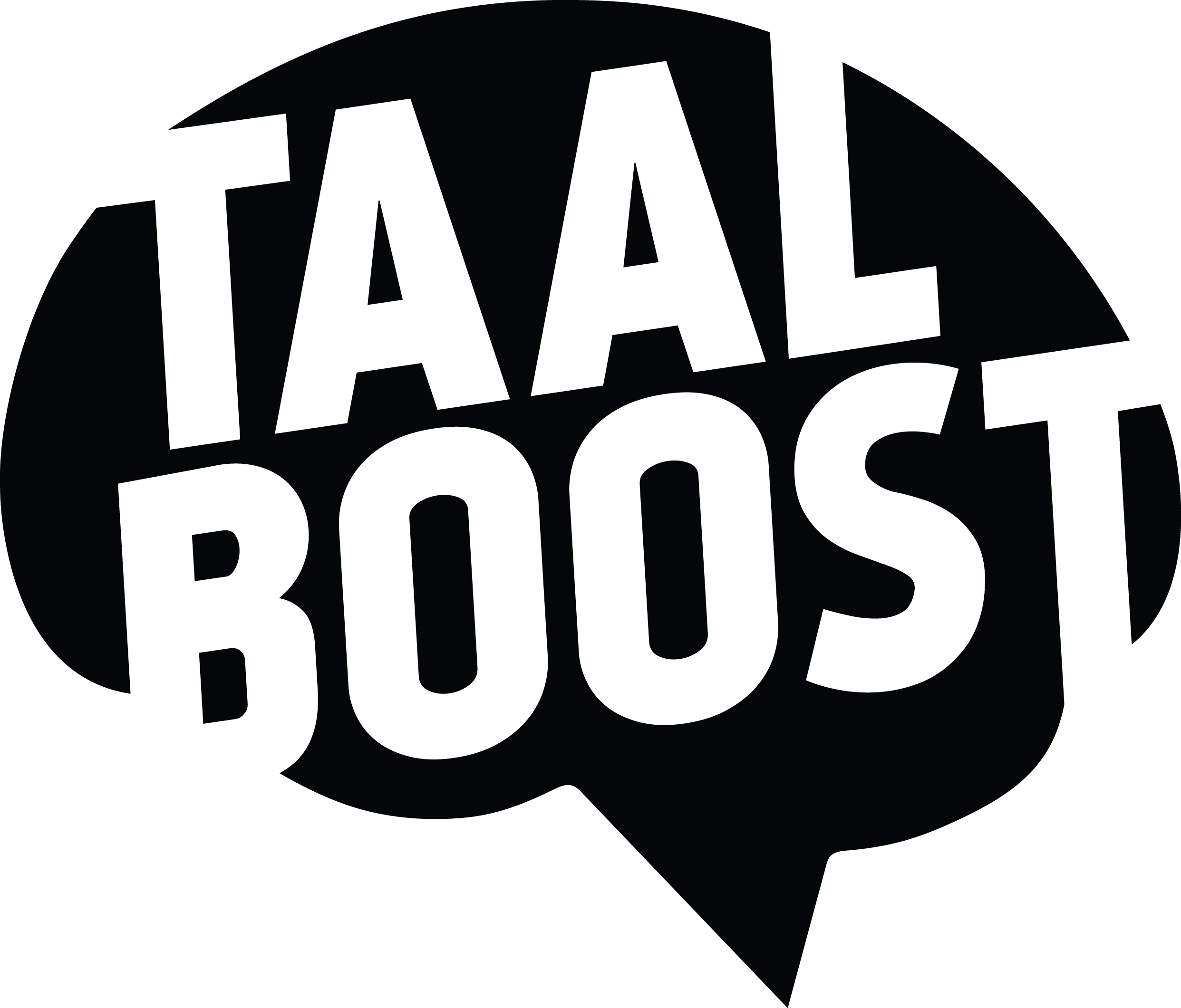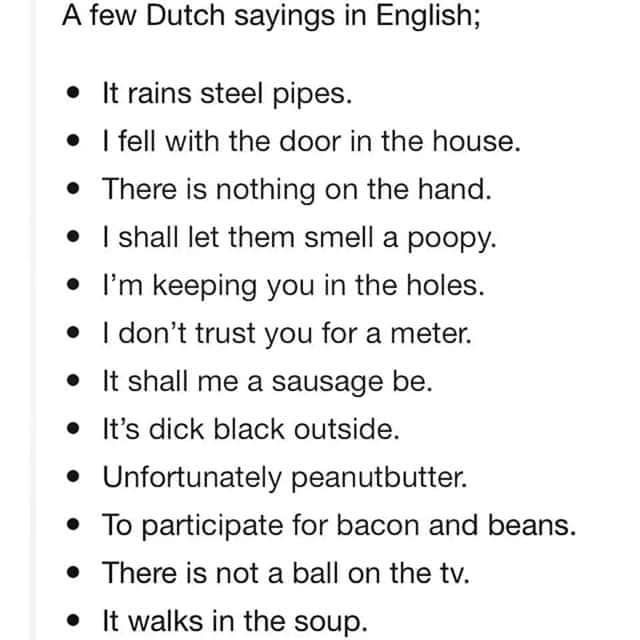12 Hilarious Dutch Expressions Explained
Last evening, we stumbled online upon this meme that completely cracked us up. It contains a short list of 12 Dutch (common) expressions, literally translated into English.
Although it is undoubtedly hilarious to read them like that (dick black outside ?!), it might be actually useful to know the actual Dutch phrase and its comparable meaning in the English language. Especially if you are learning Dutch and/or are living in the Netherlands. Or Belgium. Anyhow, here it goes:
Dutch: Het regent pijpenstelen. (=het regent heel hard.)
English: It’s raining cats and dogs.Dutch: Ik viel met de deur in huis. (=ik kwam meteen ter zake.)
English: I cut to the chase. / I told it as it was.Dutch: Er is niets aan de hand. (=er is niets gaande.)
English: There is nothing going on. / Nothing is the matter.Dutch: Ik zal ze een poepie laten ruiken. (=ik zal iets doen wat hen zal verbluffen.)
English: I will knock them for a loop. / I will show them.Dutch: Ik hou je in de gaten. (=ik hou je in het oog.)
English: I’m watching you. / I got my eye on you.Dutch: Ik vertrouw je voor geen meter. (=ik vertrouw je helemaal niet.)
English: I don’t trust you for a second.Dutch: Het zal me worst wezen/zijn. (=het maakt voor mij geen enkel verschil).
English: I couldn’t care less.Dutch: Het is pikdonker buiten. (=het is heel donker buiten.)
English: It’s pitch black outside.Dutch: Helaas, pindakaas. (=dat is jammer.)
English: That’s too bad.Dutch: Meedoen voor spek en bonen. (=meedoen zonder punten te halen.)
English: To participate only for the show.Dutch: Er is geen bal op de tv. (=er is niets interessants op tv.)
English: There is nothing worth watching on tv.Dutch: Het loopt in de soep. (=het (plan) mislukt volledig.)
English: It’s failing. / The plan is a complete failure.
Learning expressions in a foreign language is not easy and usually requires a certain level of proficiency in that language. However, expressions and idioms offer an amazing insight in the cultural peculiarities and differences that most people who learn a foreign language or live in a foreign country sooner or later will face.
If you do not speak the language, learning a couple of expressions can serve as a great conversational lubricant - your Dutch speaking partner will be flattered at best, or make fun of you if you get the expression all mixed up at worst. Either way, you will have a great topic to talk about small cows and calves! (Dutch: Over koetjes en kalfjes praten / English: To have a small talk).
If you decide to actually learn the Dutch language or level it up quickly through a series of engaging, relevant and informative Dutch language lessons in Amsterdam, be sure to check out the courses at TaalBoost - Dutch language courses in Amsterdam.

